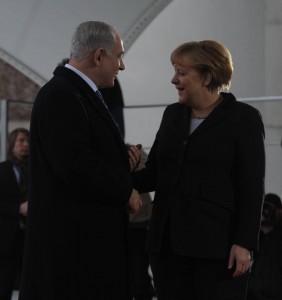Reprinted from Consortium News
Last summer, the German news magazine Der Spiegel was swept up in the Western hysteria over Russian President Vladimir Putin and the Ukraine crisis, even running a bellicose cover demanding "Stop Putin Now" and blaming him for the 298 deaths in the July 17 crash of Malaysia Airlines Flight 17 in eastern Ukraine.
"Vladimir Putin has shown his true face. Once seen as a statesman, the Russian president has exposed himself as a pariah of the international community. The MH17 dead are also his; he is partially responsible for the shooting down of the flight," a Der Spiegel editorial declared on July 28. "Nobody in the West continues to harbor serious doubts that the plane was shot down with a Buk surface-to-air missile system -- one that was almost certainly provided to the pro-Russian separatists in eastern Ukraine by Russia."
At the time, I was being told by a source briefed by U.S. intelligence analysts that the emerging scenario pointed more toward an extremist group associated with the Ukrainian government although not under the control of Kiev's senior leadership. But the major media in the U.S. and Europe refused to rethink the early "conventional wisdom."
However, in October, Der Spiegel quietly reversed itself regarding Moscow supposedly supplying the Buk missiles, reporting that the German foreign intelligence agency, the BND, had concluded that Russia did not supply the battery suspected of bringing down the plane, saying the plane was shot down by a Ukrainian military missile captured by the rebels from a Ukrainian military base (although I was later told by a European official that the BND's conclusion was less definitive than Der Spiegel reported).
Creating a Crisis
In another reversal of sorts, this leading German-language news magazine has acknowledged that the European Union and German leaders were guilty of miscalculations that contributed to the Ukraine crisis, particularly by under-appreciating the enormous financial costs to Ukraine if it broke its historic ties to Russia in favor of a new association with the EU.
In November 2013, Ukraine's President Viktor Yanukovych learned from experts at the National Academy of Sciences of Ukraine that the total cost to the country's economy from severing its business connections to Russia would be around $160 billion, 50 times the $3 billion figure that the EU had estimated, Der Spiegel reported. The figure stunned Yanukovych, who pleaded for financial help that the EU couldn't provide, the magazine said.
Western loans would have to come from the International Monetary Fund, which was demanding painful "reforms" of Ukraine's economy, structural changes that would make the hard lives of average Ukrainians even harder, including raising the price of natural gas by 40 percent and devaluing Ukraine's currency, the hryvnia, by 25 percent.
With Putin offering a more generous aid package of $15 billion, Yanukovych backed out of the EU agreement but told the EU's Eastern Partnership Summit in Vilnius, Lithuania, Nov. 28, 2013, that he was willing to continue negotiating.
German Chancellor Angela Merkel responded with "a sentence dripping with disapproval and cool sarcasm aimed directly at the Ukrainian president. 'I feel like I'm at a wedding where the groom has suddenly issued new, last minute stipulations,'" according to Der Spiegel's chronology of the crisis.
That was when the U.S. neocons stepped up their strategy of using the popular disappointment in western Ukraine over the failed EU agreement to topple Yanukovych, the constitutionally elected president.
Assistant Secretary of State for European Affairs Victoria Nuland, a prominent neocon holdover who advised Vice President Dick Cheney, passed out cookies to anti-Yanukovych demonstrators at the Maidan Square in Kiev and reminded Ukrainian business leaders that the United States had invested $5 billion in their "European aspirations."
Meanwhile, neocon Sen. John McCain joined Ukrainian rightists onstage at the Maidan urging on the protests, and the U.S.-funded, neocon-led National Endowment for Democracy deployed scores of its Ukrainian political/media operatives in support of the disruptions. Even earlier, NED President Carl Gershman, a leading neocon, had identified Ukraine as "the biggest prize" and an important step toward toppling Putin in Russia. [See Consortiumnews.com's "Neocons' Ukraine-Syria-Iran Gambit."]
By early February, Nuland was telling U.S. Ambassador to the Ukraine Geoffrey Pyatt "f*ck the EU" and discussing how to "glue this thing" as she handpicked who the new leaders of Ukraine would be; "Yats is the guy," she said about Arseniy Yatsenyuk.
As violent disorders at the Maidan spun out of control, the State Department and U.S. news media blamed Yanukovych, setting the stage for his removal. On Feb. 22, a putsch, spearheaded by neo-Nazi militias from the Maidan protests, forced Yanukovych and his officials to flee for their lives.
(Note: You can view every article as one long page if you sign up as an Advocate Member, or higher).






